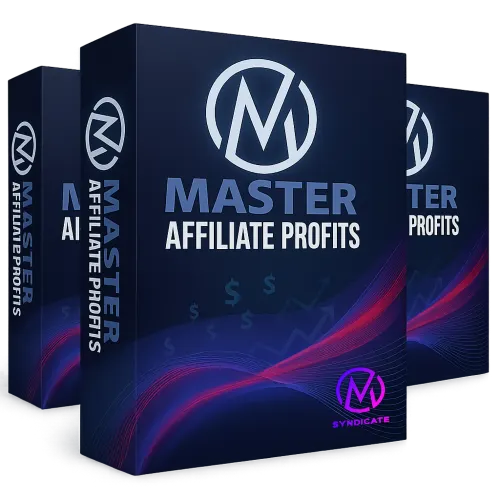What are Mass Page Sites (and Do They Really Work)?
If you're looking to improve your SEO, you may have heard of mass page sites. But what are they, and how can they help you? In this post, we'll take a closer look at mass page sites and how they can help improve your SEO.

What Are Mass Page Sites?
A mass page site is defined as a website with a large number of pages, usually between 1000 and 1 million pages. These sites are usually created by an automated system, and each page on the site contains a unique piece of content. The content on these pages is generally low quality (typically using spun or templated content) and is designed to rank highly in search engines for specific keywords.
Mass page sites are often used by black hat SEOs as a way to quickly rank for tons of keywords and direct traffic. With anything black or gray hat, you'll have to keep in mind that Google isn't cool with this stuff and are typically not built for the long-term.
What Are They Used for?
There are two main types of mass page sites: affiliate sites and doorway pages.
Affiliate sites are created by people who want to earn a commission by promoting other people’s products. They create a bunch of pages, each of which is designed to rank highly for a particular keyword. When someone clicks on one of the affiliate links, they’re taken to the product owner’s site where they can buy the product. The affiliate earns a commission if they make a sale.
Doorway pages are similar to affiliate sites, but instead of sending people to other people’s products, they send people to their own products or services. They’re commonly used by businesses that have multiple products or services that they want to promote. Each doorway page is optimized for a particular keyword and is designed to rank highly in the search engines. When someone clicks on one of the links, they’re taken to the businesses’ site where they can learn more about the product or service.
These are extremely popular for local businesses that provide services across multiple locations. They're so easy to create based on templates that utilize cities, states, and zip codes. You can have a database with all of that and then use a templated approach for mass creating content.
How Do They Work?
I'll use a simple local mass page site as an example.
Thing about plumber services. In many cases, the work that a plumber provides might be the same in Los Angeles, California as the services provided in Omaha, Nebraska.
The same can be said for a mortgage broker in Los Angeles, and one in Sacramento, California.
In SEO, so many people talk about unique content. However, for these use cases, it's quite possible that the content will be extremely similar.
So instead of creating a 100% unique page of content, the only the only things that might change are location-relevant pictures, locations, and contact details. There could be other things, but I think you get the idea.
With this approach, you can create 100s or 1000s of template pages of content with location variable changes, or even using spun content.
Are Mass Sites Effective?
In the past, mass page sites were considered an effective way to improve SEO. These sites are large, general websites with thousands or even millions of pages. The idea was that by creating a lot of content, they would be able to rank for a large number of keywords and get a lot of traffic.
However, mass page sites aren't effective as they once were years ago. Google has become much better at identifying and penalizing sites that are trying to game the system. As a result, it's now much harder to rank for competitive keywords with a mass page site.
If you're thinking about using a mass page site for SEO, you should first consider whether it's worth the risk. Google is constantly changing its algorithms, and what works today might not work tomorrow. It's possible that your site could be penalized and lose all of its rankings overnight.
Ultimately, the decision of whether or not to use a mass page site is up to you. If you're willing to take the risk, then go ahead and give it a try. But if you want to play it safe, there are other, more effective ways to improve your SEO.
With all that being said, it really doesn't cost a lot of money to create mass sites and the relative penalty isn't much as well. For example, let's say that I spend 1 hour to create 5000 pages of content, $20+ for an expired domain name, and $10 a month for hosting. If I get 1-5 sales, it's possible to profit or break even. If I make $500 or $1000 from that one site and it get removed from the search engines, it's not too much of a big deal for some website builders. Pretty much churn and burn.
What Are the Benefits?
There are many benefits of using mass page sites for SEO purposes.
1. Mass page sites help you to rank for a large number of keywords.
2. You can rank across multiple search engines.
3. Mass page sites help you to build a large online presence quickly and easily.
4. You can leverage mass site traffic to drive traffic to your website or blog.
5. They're affordable and the risk is low compared to paid ads.
6. You can utilize little funds and time to see what ranks in the search engines before building an authority site.
What Are the Drawbacks?
There are some potential drawbacks to using mass page sites for SEO purposes.
Mass page sites can sometimes be perceived as being spammy, which can reflect poorly on your business.
Finally, if you rely too heavily on mass pages, your site could be at risk of being penalized by Google and the results will be short-lived.
If you get penalized, your site will likely be removed from Google's search results.
If you're working with a strict affiliate network, there's also a chance that they'll terminate your account.
How Can I Create a Mass Page Site?
There are a few different ways that you can create a mass page site.
The most common way is to use a CMS, or content management system, like WordPress. With a CMS, you can easily create and manage multiple pages on your site.
For the latest WordPress plugins, you'll find plenty on Google if you just type in "WordPress Mass Site plugin." Some of the popular ones includes Page Generator Pro and SERP Shaker.
Finally, you can use a static site generator, which will allow you to create pages without using a CMS. If you're a bit of tech geek, you can use Scrapebox's premium plugin called Article Rewriter to generate content. These generators allow you to easily automate the site building process using HTML, CSS, and JavaScript. That's tedious and I wouldn't recommend hand-coding it unless you're super strapped for cash.








